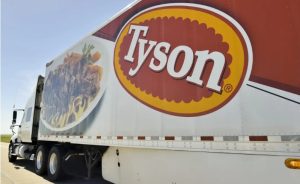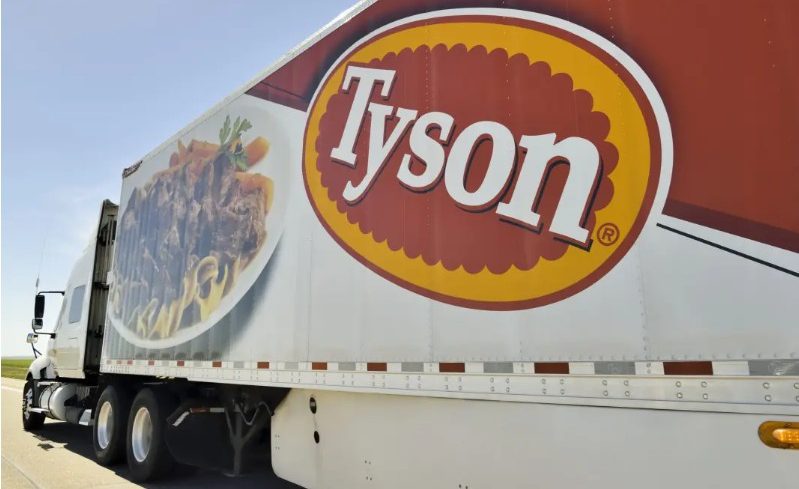
LEXINGTON, NE – Tyson Foods, America’s largest meat supplier, is planning to close one of its largest beef-processing plants in Nebraska at a time when a cattle shortage in the U.S. squeezes meatpacking companies. The Lexington, Nebraska, plant employs roughly 3,000 people and can slaughter almost 5,000 cattle a day, according to industry estimates.”
Tyson said it will also reduce operations at a beef plant in Amarillo, Texas, to a single, full-capacity shift, affecting about 1,700 workers.
A company spokesman said the changes were expected around January 20 and that it will increase production at other facilities to meet customer demand.
Reuters’ Tom Polansek reported that “beef prices soared this year as cattle supplies dwindled and meatpackers increasingly competed for limited supplies of livestock. Ranchers slashed their herds after a years-long drought burned up pasture lands and hiked feeding costs. Some have slowly started to rebuild their herds, though it takes at least two years to raise full-grown cattle.”
“Tyson’s beef business suffered adjusted losses of $426 million in the 12 months ended on Sept. 27 and $291 million over the previous year. The meatpacker projected the unit will lose $400 million to $600 million in the 2026 fiscal year,” Polansek reported. “‘We all expected a plant to be closed at some point in 2026,’ said Rich Nelson, chief strategist for Allendale. ‘I’m a little surprised they’re doing it preemptively.’”
“Losses in Tyson’s beef business were a turnaround from the profits it and other processors reaped during the COVID-19 pandemic, when meat prices soared as infections among plant workers slowed output,” Polansek reported.
The Nebraska Examiner’s Cindy Gonzalez reported that “the closure sparked swift reaction from Nebraskans. The Nebraska Cattlemen Board of Directors expressed disappointment — especially, it said, in light of Friday’s U.S. Department of Agriculture data that Nebraska cattle-on-feed inventories remain slightly above year-ago levels in spite of the ongoing cyclical tightness in national cattle numbers.”
“Nebraska Gov. Jim Pillen called the state’s cattle industry resilient and ‘the envy of the world.’ He said Tyson leadership promised to ‘work on future value-added opportunities’ in the state,” Gonzalez reported. “‘Big picture — our excellent cattlemen and cattle feeders have emerging opportunities and will still have the Tyson market to sell into as its planned re-organization will boost capacity and jobs at other Nebraska plants,’ Pillen said.”
“But U.S. Sen. Deb Fischer, R-Neb., a member of the Senate Agriculture Committee, blasted the decision,” Gonzalez reported. “‘As the single largest employer in Lexington, Tyson’s announcement will have a devastating impact on a truly wonderful community, the region and our state,’ she said. Calling Nebraska a beef state that knows better than anyone the highs and lows of the cattle market, Fischer added: ‘It’s no secret that just a few years ago, packers like Tyson were making windfall profits while the rest of the industry was continuously in the red.’”
I call on Tyson to do everything in its power to take care of the families affected by this short-sighted decision,” she said.
The White House had no immediate comment.
Trump has sought to boost beef imports from countries such as Argentina to ease prices for U.S. consumers, angering American ranchers. Trump quadrupled the amount of beef imports allowed from Argentina at a lower tariff rate. Last week, he removed 40% tariffs he had imposed this summer on Brazilian food products that slowed imports of beef used to make hamburger meat.
Trump has also accused meatpacking companies of driving up U.S. beef prices through manipulation and collusion, and ordered the Justice Department to investigate.





